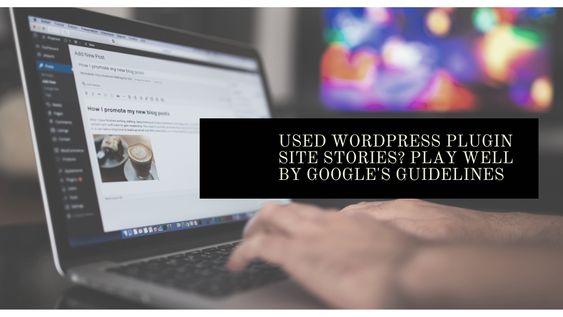![]()
What shocks few, Google has revised the quality standards for its Online Story format. For consumers of their newly launched WordPress plugin Site Tales, they want to obey the expanded guidelines for their tales to feature in the “richer interactions” through Google’s services. This includes the Search grid view, Google Photos, and Google Discover’s carousel.
Google launched the plugin for WordPress in late September. It’s a drag-and – drop editor that helps end-users to build custom storeys from their WordPress admin screen.
The plugin doesn’t connect to Google’s material guidelines anywhere. For people who don’t search a bit, they growing be caught unaware if their storeys don’t show in different Google services.
In addition to the Explore and Webmaster rules, Web Stories has six external limitations linked to:
- Copyright material
- Text-web tales
- High-quality reserves
- Few narratives
- Unfinished tales
- Excessively commercial
While one of those reasonably-obvious rules is not utilising proprietary material, the others might trip certain consumers. Since storeys are intended to reflect bite-sized pieces of details on each website, if most pages contain more than 180 words of content, they will become disqualified. Videos on each website should also be shorter than 60 seconds.
Low-quality media may also be Stories’ flag. Google’s recommendations refer to “stretched or pixelated” media that adversely affect the reader experience. They give no clear resolution instructions, but this should be a non-issue today. The opposite problem is far more likely — users downloading media that’s too big and not designed for online browsing.
The “lack of narration” guideline might be the vaguest, because it’s uncertain how Google can track or policing narration. Stories style, though, is about storytelling.
“Stories are the secret here,” wrote Pootlepress creator Jamie Marsland in a Twitter post. “We already have an accessible style to tell storeys, and we have an easy forum (WordPress) to say storeys quickly.”
Google explicitly claims Stories require a “locking pattern or plot framework” from page to page. Essentially, the organisation advises consumers to use the format for its intent. Also, they don’t want users to build unfinished storeys where readers can click a connexion to finish the storey or get details.
Commercial tales are too frowned upon. Although Google would make affiliate marketing connexions, the experience should be confined to a minor portion.
Closing his Twitter thread, Marsland seemed to strike. “I noticed several initial Google Web Stories where a brochure or website replaces the forum,” he said. “I think it’s a massive wasted opportunity. If I told brands, I’d suggest ‘Share Tales’ this is a storytelling medium.”
If plugin users adopt this guidance, their storeys can appear on Google’s rich search experiences.
Share This





Be the first to comment